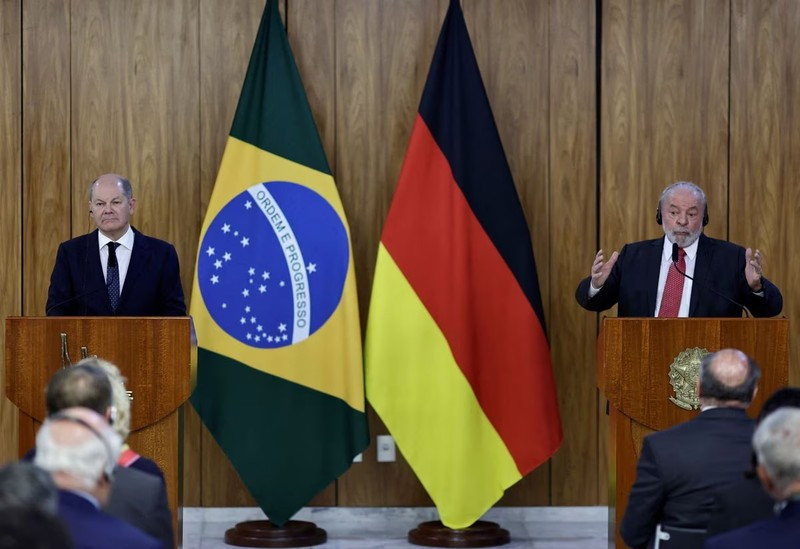He was accompanied by a delegation of more than ten business and association leaders. In an interview with the America Group of Daily Newspapers (GDA), Chancellor Scholz stated that Germany wants to strengthen cooperation with Latin America and the Caribbean, in the field of renewable energy.
One of the main topics discussed during the visit was an agreement between the European Union (EU) and the Southern Common Market (MERCOSUR), which includes Argentina, Brazil, Paraguay and Uruguay. Although the parties reached an agreement in 2019 after 20 years of negotiations, the document has not been ratified and is facing a wave of criticism in Europe, especially in the fields of agriculture and ecology.
Recently, President Lula da Silva mentioned promoting this effort and affirmed that the signing of the agreement is particularly important and urgent.
Chancellor Scholz expressed strong support for the efforts of the European Commission (EC) to reach an agreement with MERCOSUR partners. A trade agreement between the EU and MERCOSUR would create the world’s largest free trade area, with about 780 million people, providing opportunities for enterprises and reducing dependence on one party.
During the trip, Brazil was the destination that attracted the most attention of the public, because Chancellor Scholz was the first Western leader to meet Brazilian President Lula da Silva since the left-wing politician took office, on the first day of 2023. Along with trade, the environment was also a key topic in the talks between the two leaders. After Lula da Silva was elected in October 2022, Berlin confirmed its readiness to resume its contribution towards a fund to protect the Amazon rainforest. Previously, Germany, along with its largest donor, Norway, stopped their contributions after deforestation increased in Brazil.
Chancellor Scholz expanded Germany’s international relations after the conflict in Ukraine. The move is aimed at diversifying energy supplies, avoiding Germany’s dependence on Russian gas.
The German business community has pointed out the importance of the Latin American region and called for the German government to cooperate more closely. The President of the Association of German Chambers of Industry and Commerce (DIHK) Peter Adrian said, that countries such as Brazil, Chile and even Argentina, are well suited for sustainable exploitation of raw materials and energy, as well as diversification of supply chains and sales market. With more than 1,000 German companies effectively operating in Brazil over the past several decades, Brazil is a market where German businesses can build long-term trade and investment relationships. The Brazilian municipality of Sao Paulo, with millions of residents, is Germany’s largest business located outside of Germany. Therefore, to maintain competitiveness, cooperation agreements between Germany and Brazil will create a solid legal framework for businesses of both sides to cooperate.
With the new President of Brazil committed to finalising the trade agreement between the EU and MERCOSUR, the German government hopes that Chancellor Scholz’s visit will promote the process of ratifying this agreement, opening the door to the formation of the largest free trade area in the world.
In addition, the South American region is rich in minerals such as iron, steel and copper, together with lithium, an indispensable ingredient in the production of environmentally friendly electric vehicles, which is expected to bring German businesses many new cooperation opportunities.
















